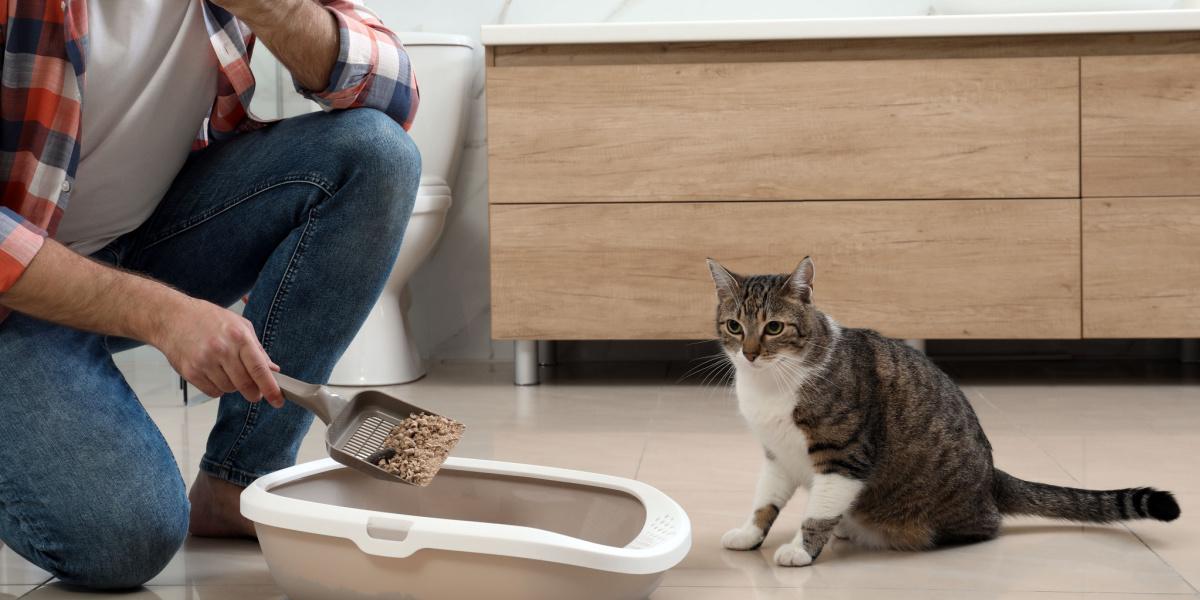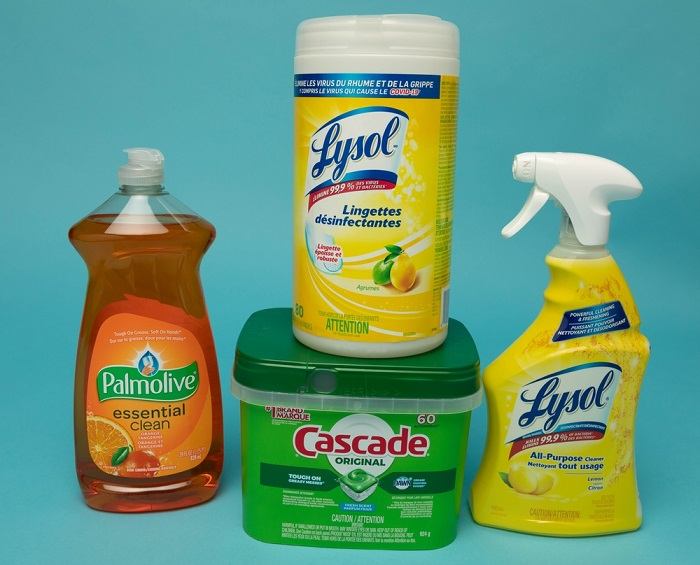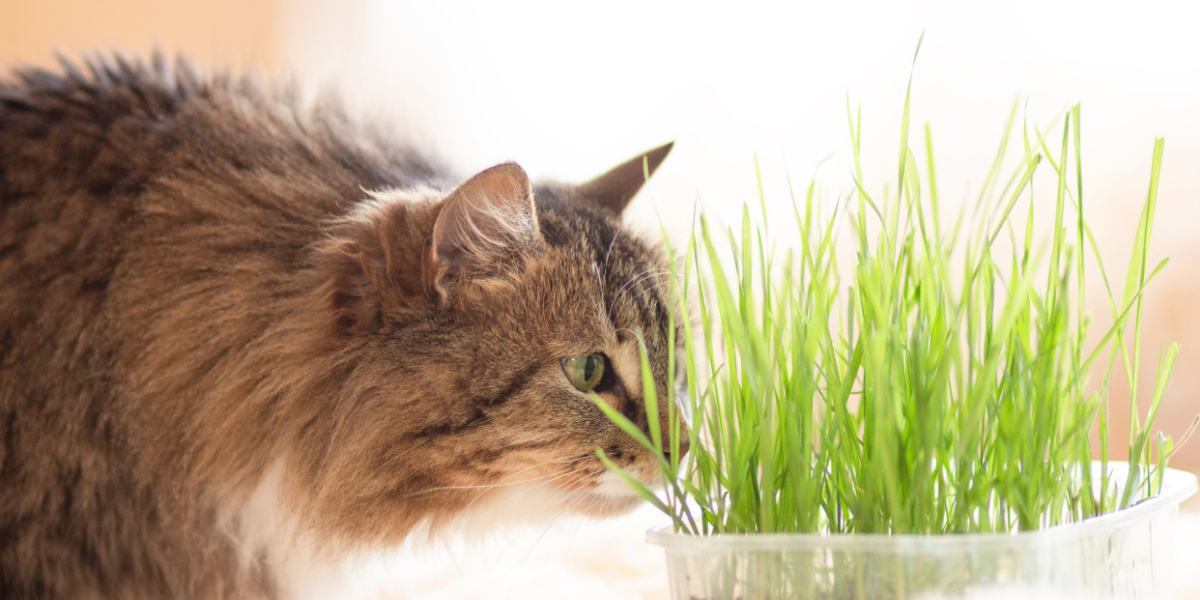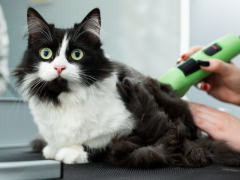
Cats have a highly sensitive sense of smell and can also distinguish between a very large number of scents. That’s because they have 200 million olfactory (smell) receptors in their noses—that’s 40 times the amount we have in ours!
Key Takeaways
Cats have very sensitive noses, so they dislike strong smells, even those that humans find pleasant.
Some smells cats hate include citrus fruits, vinegar, coffee, lavender, eucalyptus, chili, and household cleaners.
If you know the smells your cat hates you can keep them away from your cat, or alternatively, use them to deter your cat from going in certain areas.
You likely already know what smells your cat loves. Most cats come running if they catch a whiff of meat or something dairy. But what about smells that cats hate? Having an awareness of this can help improve your relationship with your cat and remind you to keep your cat away from certain areas.
10 Smells That Cats Absolutely Dislike
#1 Citrus Fruits

Cats dislike the smell of citrus, which is a good thing since eating citrus fruits can give cats an upset stomach.
Most humans find the smell of lemons, oranges, limes, and grapefruit refreshing and enjoyable. However, citrus scents are too overpowering for a cat’s sensitive nose. If eaten by your cat, citrus fruits can result in gastrointestinal upset, vomiting, and, diarrhea so it’s best to keep cats away from citrus.
Scattering citrus peel in areas where you want to keep cats away is a great tactic to use if your cat or other cats outside have decided to use your flowerbeds as a toilet. It can also be applied if you have an indoor cat. Perhaps you’ve been getting frustrated by your cat’s tendency to chew on your plants. To try and stop this, you can place some orange peel in the plant pot.
Also Read: Which Fruits Can Cats Eat?
#2 Dirty Litter Box

The smell of a dirty litter box is enough to drive most cats away to eliminate somewhere clean.
Cats are known for being exceptionally clean, so it’s understandable that they expect their toileting facilities to be kept clean, too. If your cat’s litter box is dirty, your cat might meow at you to signal that it needs to be cleaned, or they might choose to pee or poop elsewhere in your home. It’s always best to scoop the box as soon as possible and change the litter regularly to keep them happy and content.
Also Read: How To Clean Your Cat’s Litter Box
#3 Lavender

Lavender and especially lavender essential oils are toxic to cats so keep them out of your cat’s reach.
Lavender scents are known for their calming and relaxing benefits for people. However, your cat is much more likely to find the smell of lavender repelling rather than soothing. It’s important to bear in mind that lavender is toxic to cats, whether it is the lavender plant itself or in essential oil form. If eaten, it can cause nausea and vomiting.
Also Read: 10 Hacks To Keep Cats Away From Plants
#4 Vinegar

Although cats dislike the smell of vinegar, it’s not dangerous for cats, so it can act as a decent cat repellent.
Vinegar is a well-known feline repellent. Cats hate the pungent odor that it gives off. It’s not toxic so is often recommended for cleaning and getting rid of pee stains and smells.
Also Read: 4 Steps To Remove Cat Poop Stains & Smells Out Of The Couch And Rugs
#5 Coffee

Coffee grounds, beans, and the drink itself are toxic to cats, so it’s good that cats hate the smell.
The smell of coffee is not attractive to most cats. This is for the best as coffee contains caffeine, which is toxic to cats. Although coffee grounds are often recommended as a deterrent to be used in the garden, there is a risk of toxicity if the coffee grounds are licked off paws and eaten, so consider looking for other alternatives to keep cats out of your garden.
Also Read: Can Cats Eat Beans?
#6 Household Cleaning Products

Keep your cat out of the room when you’re cleaning with harshly scented chemical products.
The harsh chemicals and fragrances of household cleaning products can be too much for a cat’s nose to tolerate. Although we like to use these household cleaners to keep our homes sparkling clean and fresh, take care in case your cat’s curiosity gets the better of them.
Choose products that are labeled as pet-safe or pet-friendly. If you are using soap or other cleaning products to wipe down surfaces and countertops or to mop floors, keep your cat out of the room until everything has dried.
You want to avoid your cat walking all over these surfaces while they are still wet and then ingesting some of the cleaning product when they groom themselves. Cats also won’t want to be around when these products are being used as the smell will be at its most overwhelming.
Also Read: Poisoning In Cats: Causes, Symptoms, and Treatment
#7 Eucalyptus

Eucalyptus leaves and oils are highly toxic to cats, so they should not be used as a cat repellent.
Cats hate the potent smell of eucalyptus. Although it is often recommended as a cat deterrent, eucalyptus is poisonous to cats, so it should never be used around cats. The severity of symptoms depends on the amount of leaves or essential oil that has been eaten. Signs range from gastrointestinal upset, like vomiting and diarrhea, to tremors and seizures.
#8 Alcohol Hand Gels/Rubbing Alcohol

Cats dislike the strong smell of alcohol-based hand sanitizers.
In recent years, there has been widespread increased use of alcohol sanitizers to keep our hands clean and prevent the spread of bacteria. Perhaps you’ve noticed your cat turning their nose or moving away entirely after you’ve applied some hand gel and rubbed it in. The strong smell of alcohol is enough to overwhelm their sensitive nose so it’s best to wait for your hands to dry before reaching out to stroke them or give them a cuddle.
#9 Scaredy Cat Plant

The scaredy cat plant is purported by some gardeners to repel animals due to its unpleasant scent.
The scaredy cat plant (Coleus canina or Plectranthus caninus) is often recommended as an animal repellent. As a cat brushes against the plant, it releases a strong scent that has been compared to the smell of dog urine or skunk spray. It’s not difficult to imagine why a cat wouldn’t be happy smelling this.
#10 Chili, Cayenne Pepper, Paprika

Using spices containing capsaicin as cat repellent is cruel since a curious sniff or taste causes uncomfortable burning and irritation.
Chili, cayenne pepper, and paprika contain capsaicin, which gives them their intense spice. Cats are repelled by the smell and taste. It causes irritation to their eyes, mouth, and skin, and can also result in breathing difficulties. Given how much discomfort these spicy products can lead to, you should consider using better alternative feline deterrents.
Final Thoughts

Cats enjoy exploring the mild scent of cat grass, and might even chew or eat this safe plant.
Cats are inquisitive creatures with a strong sense of smell. Now that you have a better awareness of what smells your cat might find repelling and offensive, you know what to avoid using around them so you don’t overwhelm their senses. You can also take advantage of some of the scents cats dislike to keep them away from certain areas.
Also Read: How To Mask The Cat Smell In Your Home
Frequently Asked Questions
What smell will cats stay away from?
This will vary from cat to cat, so there is no guarantee that every cat will respond in the way we expect them to. However, most cats will stay away from the smell of citrus fruits, coffee grounds, and alcohol.
Most also dislike the fragrance of certain plants, such as lavender and eucalyptus. They are repelled by the aroma of spicy products like chili, cayenne pepper, and paprika. And they certainly don’t appreciate the strong chemical smell of household cleaning products and vinegar.
It's important to note that some of these substances are toxic to cats, including coffee, lavender, and eucalyptus. Chili, cayenne pepper, and paprika can cause painful burning and irritation to a cat's mouth, eyes, nose, and skin.
What is a good homemade cat repellent?
Since cats hate citrus scents, you can use the peel of lemons, limes, oranges, or grapefruit as a repellent. You can also mix lemon juice with equal parts water to form a DIY dilute citrusy solution that can be sprayed on areas where you want to keep your cat away.
What smells do cats hate to pee on?
Cats are very clean animals and are great at using their litter boxes. However, they might seek out other toileting spots if their litter box becomes dirty and they can’t stand the smell. So it’s important that these are kept as clean as possible.
If your cat has been peeing inappropriately in the house, it’s important to speak to your veterinarian first to check for any medical issues. Some deterrents that you can use to try and stop your cat from peeing in certain areas include citrus peel and vinegar.
-
Atkinson, T. (2018). Practical Feline Behaviour. Oxfordshire, UK: CAB International
-
Eucalyptus. Pet Poison Helpline. https://www.petpoisonhelpline.com/poison/eucalyptus/
-
Lavender. ASPCA. https://www.aspca.org/pet-care/animal-poison-control/toxic-and-non-toxic-plants/lavender







